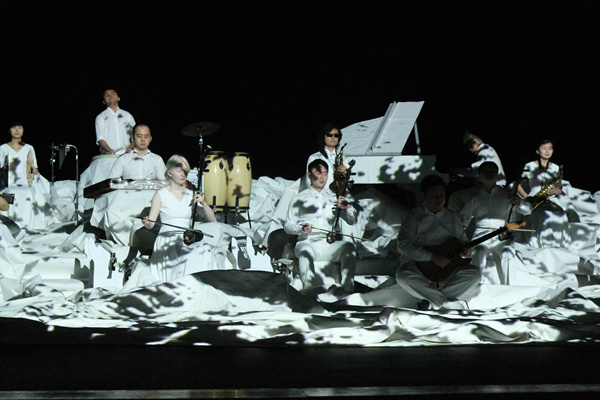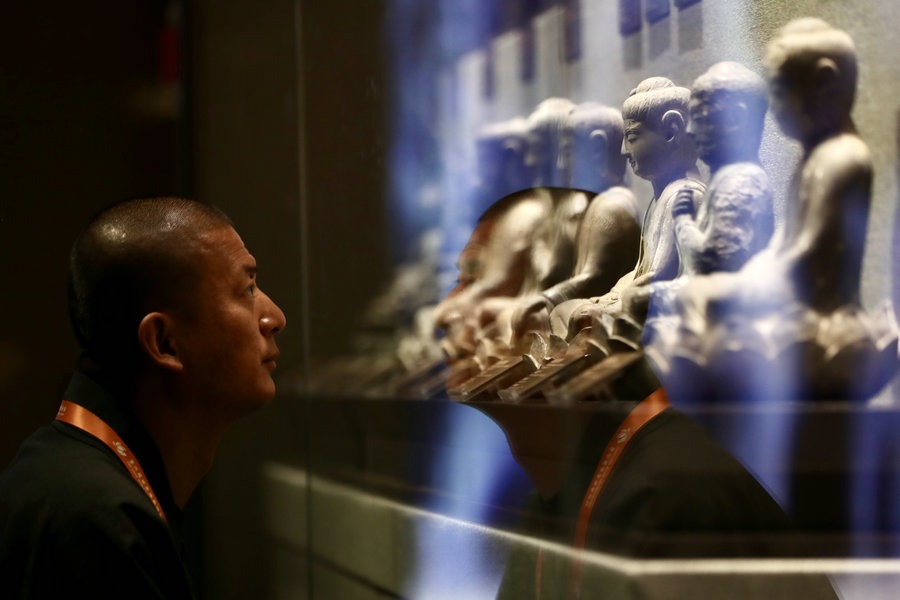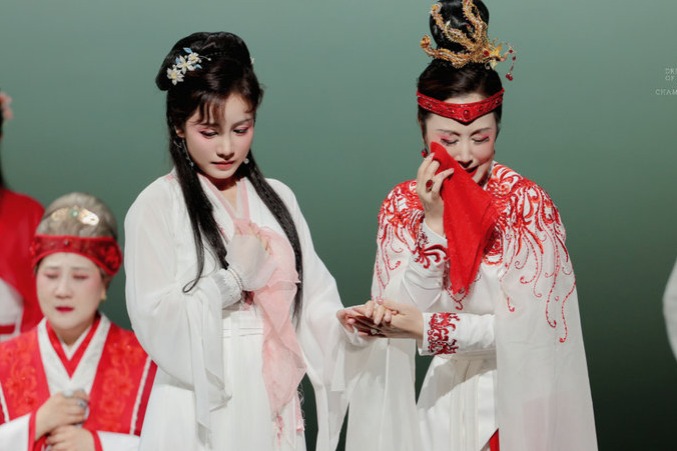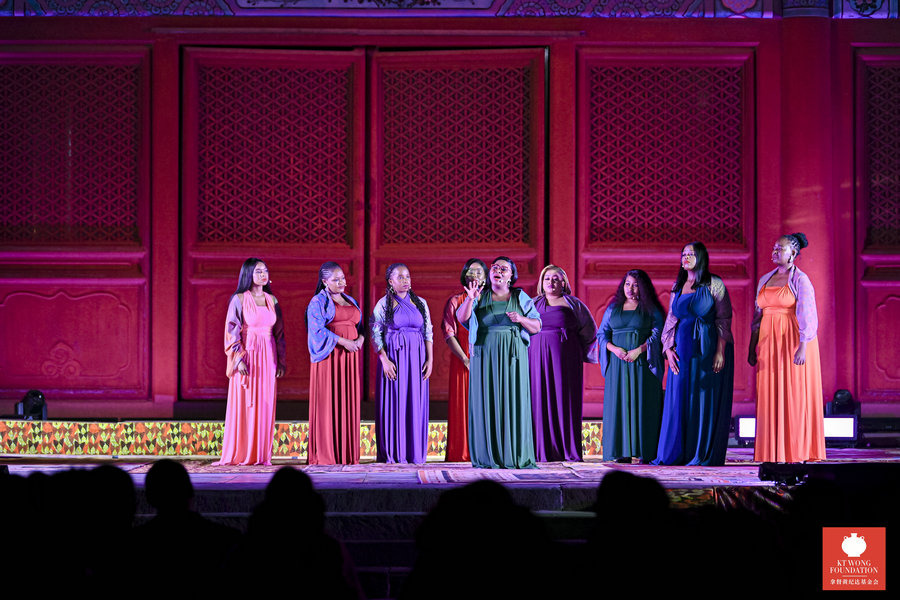Sounds of sax and serendipity


An artistic troupe taps into creativity nurtured in visual and aural shadows.
The assistant holding Wang Qi's hand leads him to his seat on the stage.
"Come and sit here," the assistant says.
The blind Wang walks gingerly before eventually reaching his seat.
"Here," the assistant says. "Yes, yes, sit down and relax."
Wang is about to play the saxophone in the last dress rehearsal of 2022 Dreamland Concert: Ever-Shining Flower, to be performed by China Disabled People's Performing Art Troupe at Beijing Tianqiao Performing Arts Center on March 18.
"We adapted the plot from Wang's life experience after reading many stories from many other members' life experiences," Dou Hui, the director, says.
The troupe had been hard at practice for more than three months.
"I really hope they do well,"Dou says. "This is the first time I have worked with the troupe, and it's awesome. They deserve to succeed."
There are more than 85 million disabled people in China, of whom about 28,000 are enrolled in government-funded schools that provide special education, the China Disabled Persons' Federation says.
Although education for the disabled is a matter of some contention, the consensus among experts is that when they take part in cultural and artistic activities it helps reduce the stigma and discrimination they often tend to face.
However, exactly how to make this a reality is a matter of debate.
"Art education has longstanding ties to disability research and pedagogy," says Dr John Derby of the University of Kansas, who over 10 years has done research about special education for people with disabilities.
Wang's saxophone career can in large part be put down to serendipity. After senior members of the orchestra of the school for the blind in Dalian, Liaoning province, graduated, gaps were left in the ranks that needed to be filled, and a recruitment drive began.




































